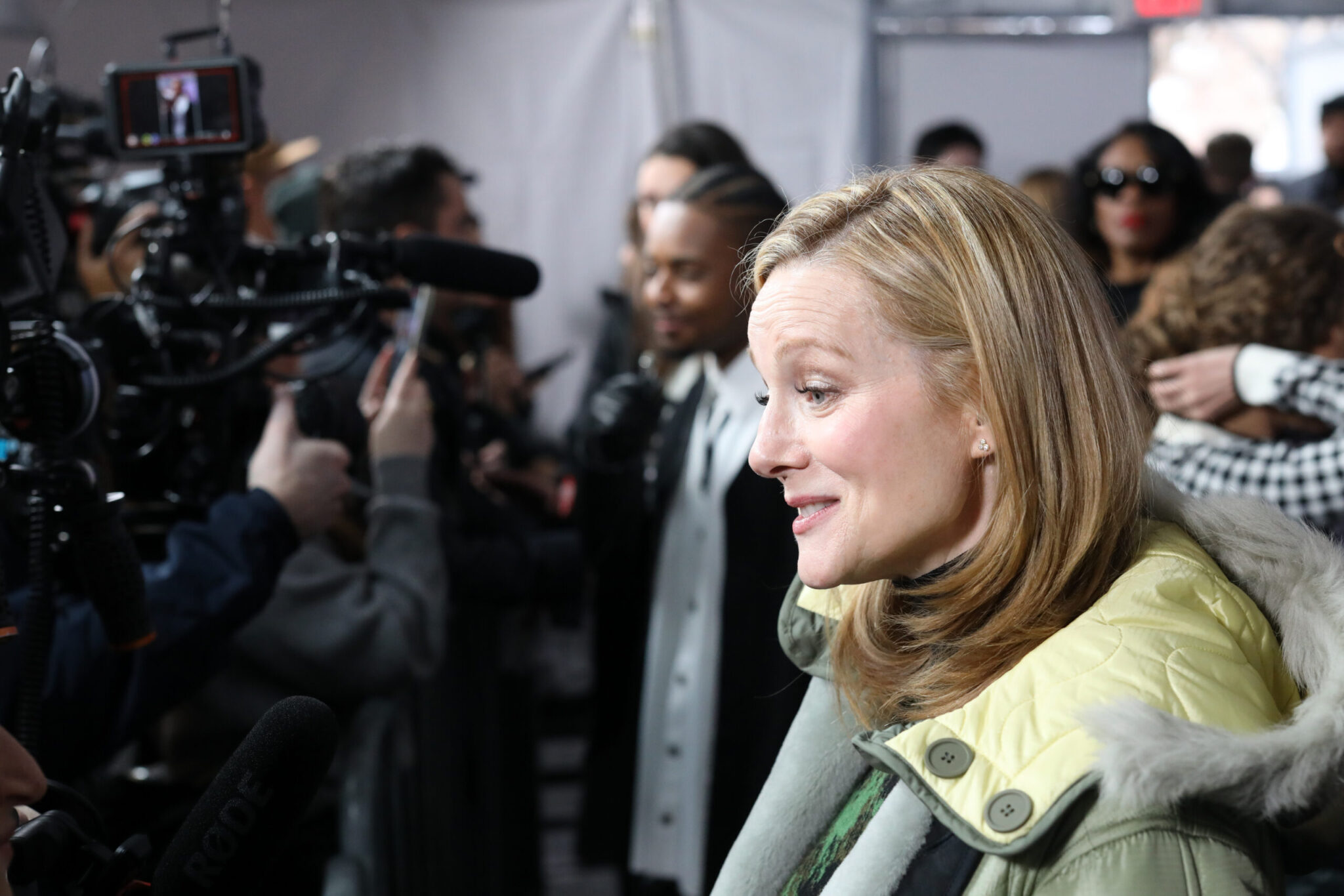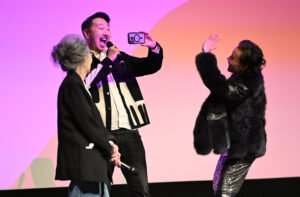By Bailey Pennick
When the lights come up after the January 21 world premiere of Suncoast, Sundance programmer Ash Hoyle asks a valid question to the crowd: “Do any of you need a tissue?” The sold-out audience cracks up, but sniffles and wet faces abound at the Library Center Theater.
Tears seem to be the main theme of the afternoon’s screening at the 2024 Sundance Film Festival, considering that during the introduction of her feature debut, writer-director Laura Chinn tries to stay steely. “I’m not going to cry right now,” she says with a slight pause. “I’m completely overwhelmed right now. So many people gave their heart and soul to this movie.” None more so than Chinn herself. Suncoast is inspired by Chinn’s own life — her brother passed away from cancer in 2005 — and within this film she wrestles with her own adolescence and grief set against the backdrop of a national firestorm about hospice care.
Doris (a complex and nuanced Nico Parker) is a teenager who has no friends or no life of her own because she’s always taking care of her unresponsive brother. Even her mother, Kristine (a skilled Laura Linney), dismisses Doris’ wants and needs to attend to him. The anxiety and living sorrow of a dying son and brother overwhelms both of them, but they express their anguish in opposite ways. Doris withdraws, wondering what the point is in interacting with her brother if he can’t hear her or respond, while Kristine becomes a micromanager of every single aspect of his care. Neither is right or wrong; they’re just surviving.
So when they decide to place her brother in hospice at Suncoast — at the same place and time that the Terri Schiavo “Right to Die” case is raging — Kristine decides she needs to sleep in the same room as her son so she doesn’t get hassled by the added guards outside the facility, which leaves Doris to fend for herself at home. This newfound freedom leads to Doris opening her mom’s house up for parties, connecting her with the cool girls at school. Parker excels in this conflicted role of excited teenager about her own social world expanding and guilt-ridden, pre-grieving sibling.
During the post-premiere Q&A, Chinn speaks candidly about her experience and received a bit of a surprise — someone who works at the real-life Suncoast wanted to thank the filmmaker for her story. “Thank you so much for telling the story of what happens inside the hospice,” says the nurse, getting emotional. “The protests took away from that story for the hospice movement, and this movie is the most important thing that has happened to the hospice movement in 20 years.”
After a few gasps, the sniffles and wet faces dominate the space again, but Chinn tries to stay strong. “I’m not crying!” she says with a quivering voice, then a bit of laughter. After this film and discussion, she might be the only one.







